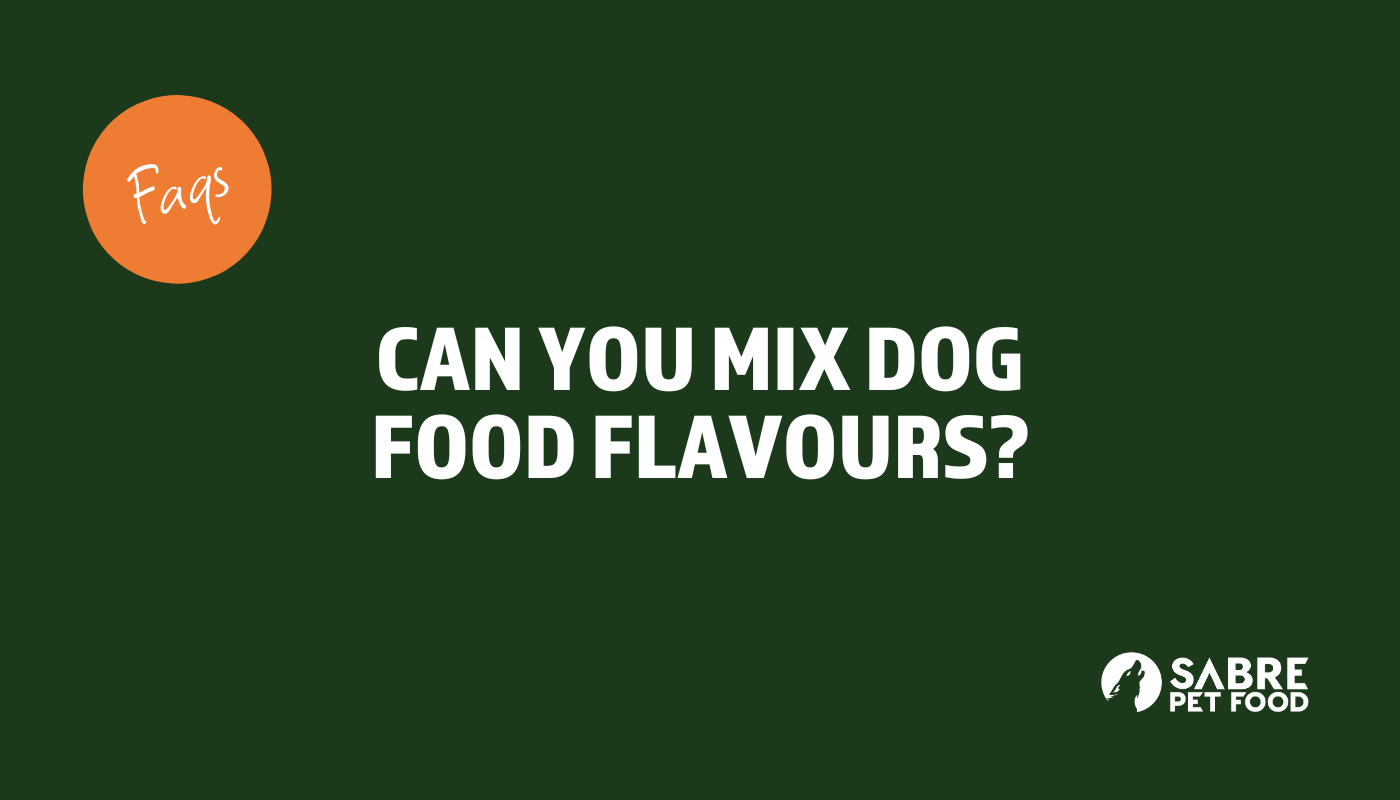We understand how important it is for our customers to know exactly what they’re feeding their beloved pets. With this in mind, we have taken time to gather as much information about the food, its ingredients, and the manufacturing process, as we can to ensure we answer all your questions and give you the best level of advice we possibly can.
Recently we were asked whether or not it is suitable to mix dog food flavours when feeding your pooch our complete dog food. As a general rule, yes, you can mix the different flavours of dog food without having to worry about causing your dog any unexpected reactions as they transition. Mixing dog food is a great way to give your dog some variety and to test different food options to see which works best for you and your four-legged friend.
Mixing flavours can be a good way to add some novelty and potentially make mealtimes more interesting for your dog. However, there are a few things to keep in mind:
Transition Gradually: If you're introducing a new flavour or brand of dog food, it's essential to do so gradually. Sudden changes in diet can upset your dog's stomach and lead to digestive issues. Start by mixing a small amount of the new food with the old food, and gradually increase the proportion of the new food over several days.
Consider Your Dog's Preferences: Not all dogs have the same taste preferences. Some may enjoy a variety of flavours, while others may be sensitive to changes in their diet. Pay attention to your dog's reactions and adjust accordingly.
Check for Allergies or Sensitivities: If your dog has any known food allergies or sensitivities, be cautious when mixing flavours. Ensure that the new flavours you introduce do not contain ingredients that could trigger allergic reactions.
Maintain Nutritional Balance: While it's okay to mix flavours, you should still aim to maintain a balanced and nutritionally complete diet for your dog. Ensure that the different dog foods you mix provide the necessary nutrients, including proteins, carbohydrates, fats, vitamins, and minerals, to meet your dog's specific needs.
Consult Your Veterinarian: If you have any concerns about your dog's diet or are considering significant changes, it's always a good idea to consult with your veterinarian. They can provide guidance tailored to your dog's individual health and dietary requirements.
Remember that consistency in your dog's diet is also important for their digestive health. So, while it's okay to mix flavours occasionally or provide variety, try to maintain a relatively consistent feeding routine to avoid causing digestive upset. See our best-selling collection of premium cold-pressed dog food here and mix & match today!
If you have a question about any of the products we supply, please don’t hesitate to get in touch with our customer services team here.

